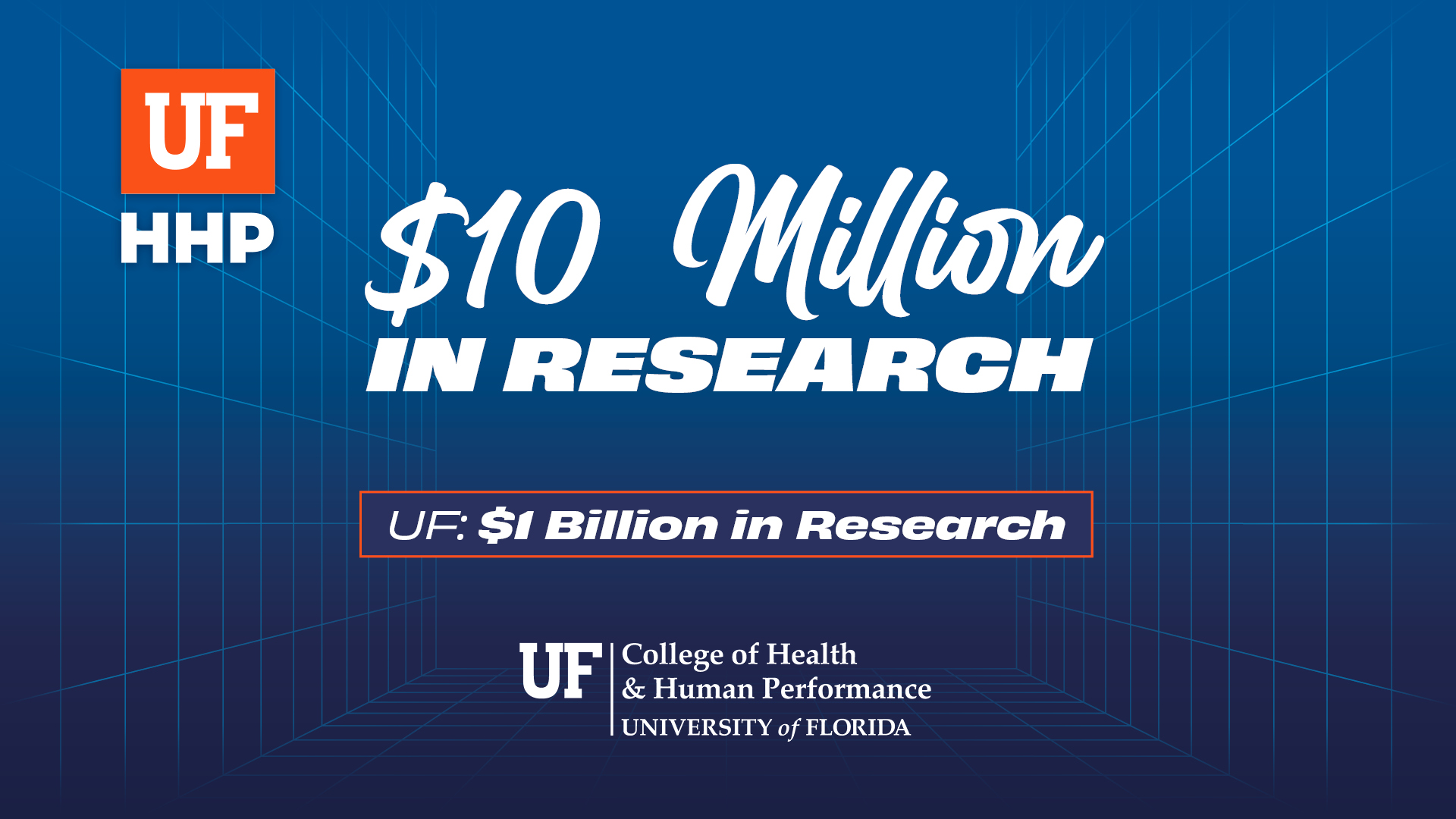 HHP - Update me in site_config > General Configuration
HHP - Update me in site_config > General Configuration
Researchers have joined in with NIH-based grants and others totaling $10 million

October 31, 2022
By Manny Rea
Halfway through the year, the University of Florida surpassed a milestone of $1 billion in research spending across all colleges. The College of Health & Human Performance (HHP) has been part of that success with $10 million of its own in expenditures contributing to the wealth of knowledge coming out of Gainesville every year.
“We’re making a small contribution but a valuable contribution to the big picture that UF has for maintaining that $1 billion,” Jim Cauraugh, Ph.D., professor and associate dean of research, said.
In his 12 years as associate dean of research, Cauraugh has aided primary investigators in the college as they prepare their research proposals for submission for external grant funding from agencies such as the National Institutes of Health (NIH). He said within that time, HHP has seen an expansion of highly qualified scientists who are asking intriguing questions.
Cauraugh said the bulk of last year’s expenditures came thanks to NIH R01 grants.
“R01’s are the gold standard for health-related research questions and have an extensive review process,” Cauraugh explained.
Through the NIH grant system, researchers seeking R01 funding must submit a well-written proposal that is scored by a study section of worldwide researchers. Some of those reviewers come straight out of Gainesville.
Elisabeth Barton, Ph.D., professor in the department of applied physiology & kinesiology and associate dean for faculty and student affairs, sits on NIH study sections to evaluate proposals based on a provided criteria. Barton asks questions about feasibility and whether the experiment will address the hypothesis. But the most important criterion to her in evaluating the proposal is the significance of the study.
“At the end of the day, it is whether or not the proposal is going to have [the] potential for high impact on the field,” Barton said.
Cauraugh has served on similar sections for European research agencies and said many of them model their system off of the NIH because of its thoroughness. If approved by the study section, a researchers’ grant can help the college acquire supplies, salaries and travel expenses, among other costs.
He said that researchers go through many trials and tribulations to get their proposals to work for the NIH. A rejection does not spell the end as researchers will regroup with Cauraugh and his team to rewrite their work.
He said their persistence in resubmitting is what ultimately makes the college succeed on the research grant level.
“Even though they’ve already done doctorates and postdocs, our researchers still enjoy learning new things, being able to write better and being able to focus their research and make a contribution,” said Cauraugh.
Recent grantees have come with a variety of ideas:
Another NIH-funded grant which has taken part in the research success is the T32 award. This grant funds researchers from different colleges on campus who present a case for interdisciplinary training to develop opportunities for pre- and post-doctoral fellows, Cauraugh said.
HHP faculty members are listed on some of the 18 active grants for UF projects:
Cauraugh believes this diversity of research is what makes HHP a vital part of UF’s recent achievements. After this wave of approvals will come another wave of more proposals needing help to be rewritten to fit the NIH standard. All it takes is putting the college researcher’s work into the right words to approach funding.
“The statements they’ll need to make: ‘Here’s what we’re asking, here’s the approach, here’s our innovation,’” he said. “And here’s the impact that it’s going to have on science and society.”
--
Comment / Like / Share - Connect with #UFHHP
FACEBOOK │ INSTAGRAM │ LINKEDIN │ TWITTER
--